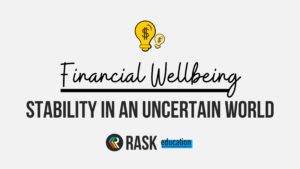This article explores the positive impacts ethical investing is having as more investors start putting their money where their beliefs are and financial firms are paying attention.
Let’s get real. We’ve all seen David Attenborough, Cowspiracy, the Occupy Movement… and the rest of them. Things are bad. We need to do something.
I agree. We need to do something, especially with regards to emissions and waste.
But before we go any further I want to tell you something really important.
The current state of affairs
Around the world, right this very second, according to Morningstar, a financial firm, over $US1 trillion is already invested in ESG initiatives. Meaning, this many US dollars — 1,000,000,000,000 — is invested in companies or assets that take into account more than just profits.
This. Is. Amazing.
And the best part? That amount of money is growing incredibly quickly. Faster than ever!
And this is just the money that is invested with fund managers (i.e. in ETFs or managed funds). If you take just managed funds — so exclude all of the direct share investors (like me), probably most Super funds, and private investors — UBS (another financial firm) reported that in 2020 as much as $US24 billion per month was being added by investors to ESG-focused funds.
Zooming out a bit more, The Wall St Journal (a financial rag) reported that the world’s top 50 economies were putting US$583 billion into supporting green efforts.
The financial world is getting better
What I’m trying to tell you is that the financial world is getting better — not worse. And as a result of people like you, investors who want to put their money where their beliefs are, more financial firms are paying attention and more good companies are being rewarded with more investment dollars.
And you want to know what’s even better?
Big financial firms are doing studies of these ‘ESG funds’ and finding that they are, on average, performing better. Right here in Australia, the RIAA’s reporting suggests a focus on Environmental, Social and Governance principles can actually improve your returns.
- During the GFC, AQR says companies with superior CSR characteristics (first quartile versus fourth quartile) had higher margins, return on assets (ROA) and growth. In bond markets during a market fall, “green bonds” have lower bond spreads (good for companies) but the yields are very slightly lower. See AQR presentation.
And we all know what that means: more financial firms will want to cash-in on the bigger returns on offer.
In summary, the world needs our help, but it’s getting it. More companies, investors, and financial firms are paying attention. And you, as a result of taking our ethical investing course, will be part of this solution.
Ok, so we now know that investing in companies with an ESG focus, that is, a focus on all parties, works. It’s better for society, better for the environment, better for employees and… better for investors.



